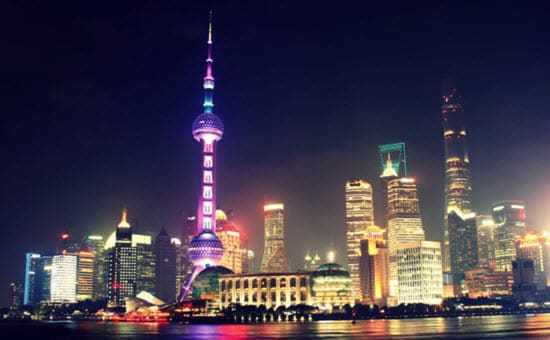I am not sure if I’m simply becoming a more globally aware person or if reports on China are on the rise, but over the past several years I seem to have been reading more and more about our world’s perceived next global power, China. This volume of new articles sparked an interest in me to learn more about this curious country. Now, it is all good and fine to read about a country, but I figure you don’t get a complete picture of a place through news articles and statistical reports, so I decided to head over for around a month and a half to see what all the fuss was about.
The fuss was well deserved.
I could write about so many aspects of China, but what really struck me was the level of innovation and entrepreneurship exhibited in so many Chinese endeavours. There is the common occurrence of street corners stacked five rows deep with bicycles for hire at the touch of a button. Most of these bikes are provided by Ofo and Mobike, bike sharing startups that didn’t exist just 3 years ago. Another familiar sight are the new franchises popping up on every corner, lines well out the door, such as the newly rebranded Hey Tea. Chinese people really love their smart phones, and daily life is also being transformed by the many apps used for everything from hailing a car with Didi (the company that bought Uber China in 2016) to ordering food delivery with Ele.me or Meituan Waimai. There are reminders everywhere of the energy and inventiveness of the populous. The citizens are proud of their burgeoning success. Many of the university students I spoke to would mention Jack Ma, the founder of Alibaba, “Have you heard of Jack Ma? He went to university around here. He is a fantastic inventor.” There is a massive sense of hope and opportunity, and for good reason. The country continues to grow at an impressive clip and young entrepreneurs are taking their chance.
I got the opportunity to visit a number of foreign and local firms to see how business is conducted in China. One firm I visited is aiming to introduce dairy into the Chinese diet. Traditional Chinese food consists of little dairy, so this will be a massive change for a country whose culture of food appreciation dates back centuries. The new wave of Chinese youth, exposed to more global ideas, have embraced Western cuisine and trends. However, this still does not make entry onto the market easy, one has to find a niche or adapt a known classic. In this case, one of the more successful innovations has been the introduction of a new type of tea. The Chinese adore tea so introducing new dairy products into the tea market would be a wonderful way to get a foot in the door. So, what was the new product idea? Flavoured tea with a layer of cream cheese on top. I was sceptical, but this innovation is sweeping the nation, so I had to try it. Certainly a unique taste. At the end of the day, not my cup of tea.
But this is how you have to think if you want to succeed in China. The market is so competitive, filled with so many products, that you have to think different and be willing to try literally anything to succeed. Once a product takes off, sales are likely to sky-rocket. Trends spread so quickly within China, as everyone is interconnected through WeChat, that there seems to be somewhat of a hivemind mentality. It is very hard to permeate the hivemind, but once you are in success can come quickly.
It is somewhat hard for a foreigner to operate in China. WeChat, the Chinese social media mobile app owned by Tencent, allows you to pay for things using your smart phone. This is a great leap forward compared with archaic payment methods of cash, debit and credit cards which are used in Western countries. However, you won’t be able to use it unless you have a Chinese bank account. Whilst China has been modernising and opening its borders, the Great Firewall is still in place. Unless you install a VPN, preferably before you land in China, you will only have access to Chinese apps. They are very innovative, but difficult to use as a foreigner. A side effect of the Great Firewall though is that it has protected the Chinese tech industry, sparking a Cambrian explosion of innovative Chinese technology from the top three tech firms (Tencent, Alibaba, and Baidu) as well as a growing list of key players such as China Mobile, JD.com, NetEase, Sina Corp, Ctrip, Huawei, Xiaomi, and Didi Chuxing. The next step for these firms is to bring their tech to the West.
Will China’s rampant growth continue? I cannot say.
A lot of Chinese growth is propped up by debt financing which supports obscene property valuations for tiny apartments, and supply may soon outstrip demand as China begins to pass laws restricting speculative property purchases, but that is a story is for another time. All that said, there is a certain buzz to China that left me exhausted day after day but after a couple of months of recovery back in New Zealand, I have a certain itch to head back.
Dean Franklet is a third year economics and finance student at the University of Canterbury where he is President of the largest commerce society on campus. Spending his life in Texas and then New Zealand with a few other stops along, he gives a unique global viewpoint to portray in his writing.
Image: Pexels
